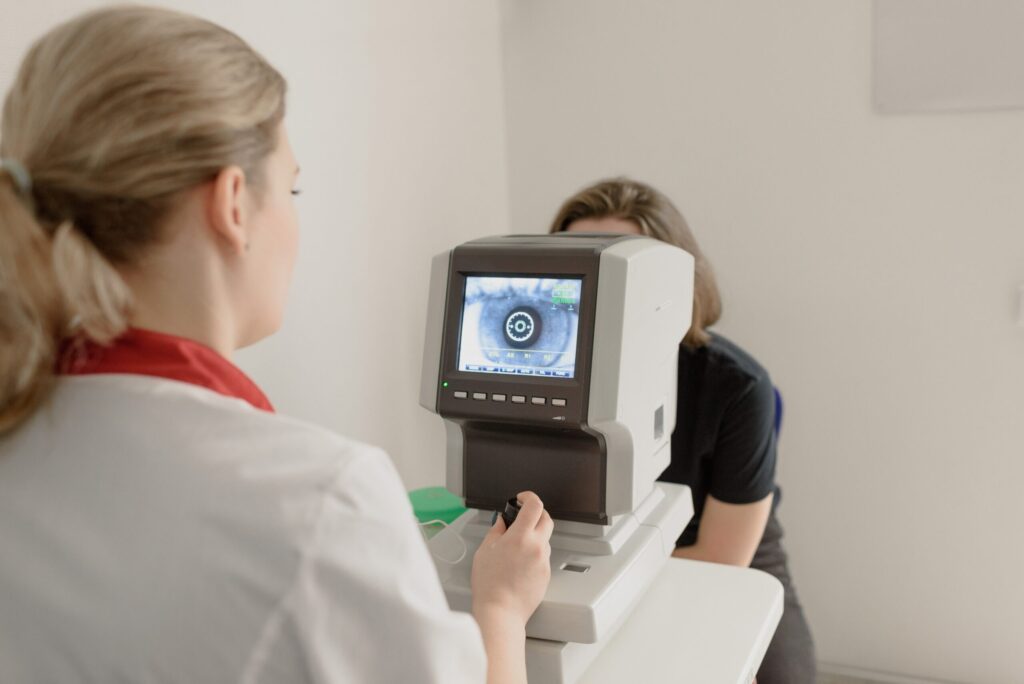You get annual physicals, and you go to the dentist regularly. Is your eye doctor on that list, though?
Regular eye check-ups not only keep your eyesight strong, but they help discover eye illnesses early, many of which go undetected for lengthy periods of time.
It’s impossible to argue that getting your eyes tested isn’t beneficial, whether to help you see more clearly or monitor your risk for eye illnesses.
Recommendations for how frequently you should see your doctor may differ depending on your age, health history, and gender.
As such, here are five indicators that you may want an eye exam:
1. You Can’t Remember When Your Last Eye Exam Was.
If you are trying to remember the last time you got a complete eye exam, it’s probably been a while. Unfortunately, many eye disorders have no symptoms at first and may go untreated, worsening over time. Screening can help you get treated faster and avert a worst-case scenario.
Early detection and treatment are crucial in the treatment of common eye diseases such as:
- Cataracts: cloudy lenses in your eyes that can cause vision loss.
- Diabetic retinopathy: the result of damage to the blood vessels behind eyes, which can lead to blindness.
- Glaucoma: a condition that affects your visual nerves.
- Age-related macular degeneration: the progressive loss of structures in your eye that allows you to see by using light.
If you don’t have any risk factors, ask your doctor if every two years is enough. Then, talk to your doctor about increasing it to once a year after you reach the age of 65. If you have other risk factors, such as a family history of eye illness, you should see an eye doctor every year, regardless of your age.
2. You Are Predisposed to Eye Diseases.
Some factors, like any other part of your health, might raise your chance of developing eye illnesses, some of which are beyond your control. You should have your eyes tested at least once a year if you:
- Have a personal or family history of vision problems such as cataracts, diabetic retinopathy, glaucoma, or macular degeneration
- Diabetes.
- Have a visually demanding profession, such as working on a computer all day.
- Use contact lenses.
- Have had past eye surgery or an eye injury.
- Have a vision that is deteriorating with time.
3. Your Vision is Deteriorating.
If you’re having trouble reading road signs or the writing on this screen, it’s an excellent time to visit your eye doctor. Millions of individuals worldwide wear corrective eyewear, such as glasses or contacts. Some people struggle to see far out (farsightedness), while others struggle to see close up (nearsightedness) (farsightedness).
Eye strain can induce headaches and make it challenging to continue regular activities. This occurs when your eyes aren’t concentrating correctly, leading them to work harder than usual. A headache induced by eye strain usually occurs after using your eyes for a long time, such as when reading, working on the internet, or even stitching.
4. You Tend To Be Allergic.
You may be allergic if your eyes are red and inflamed, but you can’t see anything. You may not even notice sneezing, sniffing, or a stuffy nose, but you may have ocular allergies if you are experiencing:
- Itchiness
- Redness
- Burning
- The discharge is clear and watery.
5. You Have Additional Eye Issues
If you suspect that something is wrong with your eyes, don’t put it off until your next checkup. You might show early indicators of eye illness, infection, or damage.
Listen to your body – if you’re concerned about your eye health, immediately schedule an appointment with your eye doctor.
Other reasons to visit an eye doctor include:
- Redness or drainage in one or both eyes
- Eye pain
- Dual vision
- Floaters (tiny specks that appear to be floating before your eyes)
- Halos or circles surrounding lights
- Flashes of lights
You may also like
-
Embrace the Essence of the North: Experience Clean Nicotine with Premium Nordic Spirit
-
Discover Treatment Options For Adderall Addiction in Houston, TX
-
How does body chemistry impact your response to HHC gummies?
-
Role of synthetic urine kits in laboratory calibration
-
How can nutrition support anabolic steroid results?


